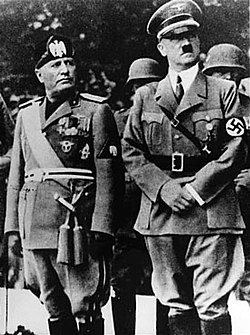Dictator

The word dictator or despot in modern times is used to describe the absolute ruler (other than a king) of a country, who uses force and fear to keep himself and his friends in authority, and can effectively make laws all by himself. A country that is ruled by a dictator is called a dictatorship.
The word "dictator" is from the Roman Republic where a man would be given absolute power for half a year or one year to handle an emergency. Julius Caesar was the last Roman Dictator.
Some dictators gained political power through violent takeover, such as a military coup, civil war or revolution. Some won an election and cancelled new ones once in power, or changed how they were run to make them unfair for opponents.
![[[Pol Pot]] served as the [[totalitarian]] leader of [[Democratic Kampuchea]] between 1976 and 1979, during which his [[communist]] regime killed an estimated 1.5 to 2 million Cambodians.](http://upload.wikimedia.org/wikipedia/commons/thumb/4/47/Pol_Pot.jpg/220px-Pol_Pot.jpg)
Kings and emperors often use force and fear too, but usually they are not called dictators. This is because those monarchs have some reason for being in power (usually their father was king or emperor), but a dictator gained power himself. Also, when someone is king or emperor of a country, usually there were several kings or emperors before them. A dictator often creates the job of dictator by gaining power.
Mao Zedong, Joseph Stalin and Adolf Hitler were responsible for the most amount of deaths, but Pol Pot was perhaps the deadliest dictator in history, with nearly a quarter of the Cambodian population dying under his rule.
List of dictators[change | change source]
- Enver Pasha
- Adolf Hitler
- Benito Mussolini
- Miklós Horthy
- Ion Antonescu
- Ante Pavelić
- Hideki Tōjō
- Fumimaro Konoe
- Juan Perón
- Augusto Pinochet
- Ruhollah Khomeini
- Saddam Hussein
- Leopoldo Galtieri
- Slobodan Milošević
- Vladimir Putin
- Vladimir Lenin
- Joseph Stalin
- Nikita Khrushchev
- Leonid Brezhnev
- Yuri Andropov
- Konstantin Chernenko
- Mikhail Gorbachev
- Chiang Kai-shek
- Mao Zedong
- Deng Xiaoping
- Xi Jinping
- Kim Il-Sung
- Kim Jong-il
- Kim Jong-un
- Ho Chi Minh
- Pol Pot
- Fidel Castro
- Raúl Castro
- Rhee Syng-man
- Ngo Dinh Diem
- Erich Honecker
- Nicolae Ceaușescu
- Tito
- Wojciech Jaruzelski
- Todor Zhivkov
- Napoleon for five years before he crowned himself Emperor
